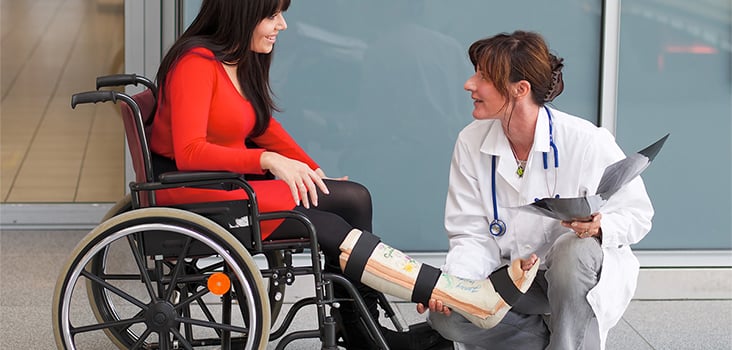
Dear Injured Employee: Returning to Work is Good for You
Returning to work after a medical leave can be a scary process, especially if your work-related injury was quite serious and involved long-term rehabilitation. It’s understandable to have apprehension about returning to the workplace, wondering what you will encounter and is there now greater risk for a future injury. But it’s important to focus on the benefits of returning to work, and the positive aspects of being part of a team can provide for your health and well-being.
You Are Needed
At any organization, you play an important role that helps the company function. It may be easy to assume that others may have held things down while you were away, but your employer hired you because of your unique skills and talents. As an established member of your company, you also know how processes work and have invaluable experience within the company – something an outside resource simply doesn’t offer. While a replacement could be brought in, ultimately your employer knows that no one does your job quite like you do.
Part of the Healing Process
Returning to work is an important part of healing. Being part of a team, and having a routine helps to create expectations and internal rewards that all help to support a positive mental outlook. Having something to look forward to, being productive, and contributing to a larger goal can be a positive focus, and helps to divert your mind to something other than your injury or the worry of a reinjury.
Depending upon the severity of your injury, it may take more time for your body to regain its full strength, which is why Concentra clinicians often advocate for limited-duty or modified duty for patients. This means that you can return to your role, at anywhere from 50-80% function, helping you to improve your strength while still staying active in your role.
You’re A Contributor at Home Too
You are more than just your role at work. You have responsibilities that extend outside of the home. You have a family, and loved ones who care about you too. You also have hobbies and interests that are equally important to you. Helping you return to work means you have a better mindset to focus on the responsibilities at work and at home, knowing you are contributing to both areas of your life. It also means that your normal salary is helping you achieve your goals, and provide for yourself and your loved ones. With your mind focused on the tasks ahead and plans for your future, you can rest assured that you are needed.
You Can Do It
Returning to work after an injury or illness is good for you and your employer, too. It isn’t easy, but you’re not alone. Here are some tips to help you get through those first hurdles of returning to work.
Stay positive. A positive attitude goes a long way and lets others know that they don’t need to worry: you’ve got this!
Avoid assumptions. Don’t assume that you haven’t been missed or that you aren’t needed. And don’t assume that you won’t be able to do your job just because you may need a little help at first. You may surprise yourself.
Work with medical professionals. Communicate with your doctors and physical therapists, they can work with your employer to help adjust your work role to suit your medical needs.
Network with others. Talk to coworkers who may have been through a similar situation. Knowing that you are not alone and receiving tips from others can be a great help.



